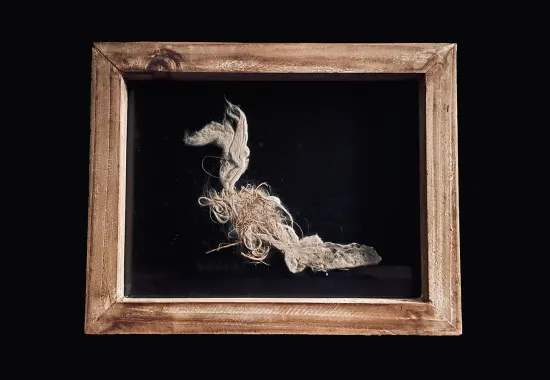Tuesdays with Ted Kooser: How I Found the Heart Behind My Collection of Poems, “PULSE”
When I accepted my offer to the University of Nebraska-Lincoln’s English PhD Program, I knew that Ted Kooser was on the faculty. I also knew Ted was famous. Famous. That’s a word we don’t like to use in poetry, specifically because fame is what we want. Yet there I was, destined to study with a Famous Dude, more specifically, a famous old white guy, more specifically, a famous old white guy with a trail of awards in his wake. What I didn’t understand was that, in addition to being famous, Ted Kooser was, and is, is an extremely nice guy; a quality which I’d previous overlooked, in poetry and in life.
Ted’s a poet with whom I share zero aesthetic overlap. For the sake of this blog, I’ll simplify how my poetry differs from Ted’s work, because he is famous, and I am not. My work tends towards the confessional. My lines are long, my stanzas (when I use them) are breathy. My language is loaded with metaphors. I enjoy shock and titillation. Ted does not. For this reason, among others, people love his work.
Ted writes about how spring’s playfulness evokes memories of his late mother’s imagination. He writes about an old couple splitting a sandwich. He writes about a pair of praying plaster hands. I write about a crazy club-wielding man charging at me as I run through the Costa Rican jungle. That’s a true story, I’m afraid, and a story for later.
When I first worked with Ted, I was cautious. With more than forty years between us and seemingly so little in common, what could he teach me? The answer: kindness and likability, in poetry and in life.
"Although we don’t want our speaker to represent us, we assume a large amount of responsibility when we inhabit that first person. Whether we like it or not, our reader assesses our voice and likability, and those perceptions inform whether or not she turns the next page. "
During our Tuesday one-to-ones, when I turned in my unpublished manuscript of poems, at the time entitled “The Sun Will Not Go,” Ted didn’t mince words. His words weren’t the ones I wanted to hear, especially not from a famous poet and at that point, my friend:
“Dear Maria,
I suspect that you’re wearing a mask of toughness and it’s feeling a little hot on your face. We’ve talked about vulnerability, and we can both agree that there’s a tender, caring Maria beneath all these poems, but as of now, I don’t see it.
I’m not saying that as poets we need to fall all over ourselves being likable, but as of now, the speaker throughout these poems is constantly judging everyone, and nobody wants to spend a lot of time with someone who is constantly judging others—even when they need judging!”
My body felt like it was being lowered into an almost-scathing tub: soothing and unpleasant, welcoming but uncomfortable.
I eased deeper into the discomfort, then looked back at the voice which emanated throughout the manuscript. When I used to sell sunglasses, when I was bored, I’d put on a pair with amber lenses. When I donned on those glasses and looked through the store, everything which appeared deadened suddenly came to life. The sunglasses, trapped in tall cases of glass like pinned butterflies, suddenly popped with color. The plants in the corner glowed space-alien green.
As I looked through my draft, this stark visibility sharpened into an eerily bright focus. Throughout those poems, my speaker looked like a real asshole. Was that the way I wanted people to remember me? In one poem, “Tits and Violin,” the speaker describes an encounter:
“When a guy in the bar says he loves nothing more than tits and violin, and I don’t punch him,
I know I’ve mellowed with time like a fading chord.”
Some decent lines, but as this badass persona echoed, this hostility, confrontation, and shock-value coated the manuscript like a lime deposit. For the first time, I saw myself as Ted or a distant reader would: as someone whose tragically tough veneer allowed zero room for vulnerability.
That persona, moreover, clashed with my actual personality. I’m no wimp, certainly, but the one thing I despise is conflict. When interacting with other people, I usually prefer to give the benefit of the doubt until proven otherwise. I also have a tendency to over-trust, to override my own good sense—and boy, have I paid dearly for that. I’ve got a destructive streak which I’m not particularly proud of, in addition to a broken urge to make people, specifically those who hate my guts, fall in love with me.
This person was absent throughout the collection: and that other person was kinder, more interesting, and fucked up than that initial tough, and uninviting voice.
So, I took off the mask, put on amber lenses, and focused on more interesting questions: why do we love friends who are incorrigible pains-in-the-asses, especially when they wake us up in the early hours to borrow our car? Why do people love us, when at our core we’re such miserably flawed, yet wholly loveable people?
As I considered these questions, “The Sun Will Not Go,” reshaped itself under Ted’s watchful eye. Gradually, these themes worked themselves into the poems. I retitled the collection, “PULSE,” since the platform poem is specifically about the 2016 Orlando Pulse Nightclub Shooting. The poem, “Aubade in a Burning Bar” is forthcoming in the Spring 2019 Issue of The North American Review and contains excerpts of love letters exchanged between one of the shooting survivors and an ex-lover and victim.
“Cape Cod Pantoum,” which originally appeared in the 2016 Issue of The New Yorker, examines why we take people like Billy back into our lives, again, despite his ability to wreak havoc.
“Waitress in a Small-Town Seaside Tavern,” appeared in Issue 155 of TriQuarterly and is forthcoming in Martìn Espada’s edited anthology, “What Saves Us: Poems of Empathy and Outrage in the Age of Trump,” will be published by Northwestern University Press. This poem examines how we rationalize and overlook domestic violence.
So, I urge anyone working on a collection of poems to pause for a second. In the midst of our world’s insanity, our mad-dash to publish, our impulse to add CV lines, ask yourself this: does this manuscript do justice to my voice and kindness? Do these poems resonate with likability?
Although we don’t want our speaker to represent us, we assume a large amount of responsibility when we inhabit that first person. Whether we like it or not, our reader assesses our voice and likability, and those perceptions inform whether or not she turns the next page.
When I showed Ted the second go-round of the manuscript, and he gave it the thumbs-up, I was ecstatic. Now, as I embark on the staggering game of odds, submitting my work in competition with scores of excellent manuscripts, although I don’t know whether “PULSE” will see the light of day, the speaker is alive and real.
Regardless what happens to this book, I know what happens in this book: this narrator is neither beige wallflower nor whiskey-chugging cliché. Rather, she stumbles blindly through tragedy and joy. Regardless of what happens, she clumsily leads the reader with compassion. For this, I am grateful for those many Tuesdays spent with Ted.
To chat more about poetry, writing, coaching, or what I’m up to:
Follow me on Twitter at @MariaNazos,
Friend me on Facebook Maria Liss Nazos
Follow me on Instagram at nazosmaria
Connect with me on Linkedin
Email me at: marianazoscreativesolutions@gmail.com
Recommended
A Behind the Scenes Look at Art Selection and Cover Design for the NAR
“Doubling and the Intelligent Mistake in Georges Simenon’s Maigret’s Madwoman”
What the Birds Showed My Wounded Child, My Adaptive Adolescent, & My Wise Adult






